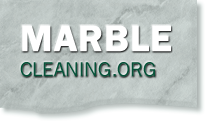| Home » Categories » Natural Stone Q & A’s |
Thassos 1/4 inch tiles for bathroom floor |
| Article Number: 646 | Rating: Unrated | Last Updated: Tue, Oct 16, 2007 at 12:00 AM |
|
We are re-doing our bathroom, and plan to use carrara marble on the walls. We are thinking about using 1/4 inch polished Thassos mosaic for the floor (including the shower). It is a very tight weave of beautiful sparkly white Thassos mosaic tiles. We like the purity and sparkle of the Thassos, and we also like the small tiles in the tight weave -- since it will not show lots of grout. (We do not like wide grout lines -- especially since we live in NYC and the grout always gets dirty.) Are there any reasons we should be concerned about using this 1/4 inch Thassos on our floor? Will it be hard to keep clean? Will we be able to put enough grout in between the tight weave of the tiles to make for a waterproof seal in the shower? Should the floor be sealed or left in its natural polished state? Many thanks! Jonathan Lieberman
Dear Jonathan:
“
(We do not like wide grout lines -- especially since we live in NYC and the grout always gets dirty.)
”
Any particular reason why the grout gets dirtier in
“
Will we be able to put enough grout in between the tight weave of the tiles to make for a waterproof seal in the shower?
”
Finally somebody concerned about a vital issue! It's a very good question with no answer from me without actually seeing the gap available within mosaic pattern. If you're not positive that you can grout it thoroughly, go to plan “B” with your selection!
“
Should the floor be sealed or left in its natural polished state?
”
I'm not sure I understand the question. The application of an impregnator (a.k.a. sealer) only reduces the natural absorbency rate of the stone, but since it's a below-the-surface (of the stone) product, it can't and in fact does not affect in any way, shape or form the original factory finish. In the case of White Thassos (and White Carrara, too) if it were my own bathroom the sealing thing wouldn't even cross my mind for a second. Not only both stones are quite dense (contrary to popular and widespread misconception), but the chance of spilling something that could stain them (coffee, cooking oil, etc.) without realizing it are minuscule to say the least. Sealer for stone do not offer any protection whatsoever to the surface of the stone and polished marble can seldom be technically sealed to begin with, fir it's just to dense and an impregnator would have a very hard time to absorbed by it.
The issue of what you'll be doing day in and day out to your stone is – as it should be intuitive – vastly more important than its sealing
(if and when possible and/or advisable)
and it's all too often neglected. As you can tell by reading many of this site's postings, you're not likely to get good information about it from your dealer or installer. Don't become another statistic! By logging into the Helpful Hints section of our website at:
http://www.marblecleaning.org/helpful-hints.htm, you will be able to get the short version of our maintenance guidelines at no charge. The full version of it – a 7-page document considered by many as an industry benchmark – is available in pay-per-download format in our Educational Literature section at:
http://www.marblecleaning.org/literature.htm.
And remember, every single penny of the cost of the literature will be used to support this site and its cause: your cause.
While you are in the “Helpful Hints” section, do spend some time reading all of the interesting FREE articles you'll find in there!
Finally, keep in mind that we need your support to help us helping you!
Will you please read and e-sign our Statement of Purpose at:
http://www.marblecleaning.org/purpose.htm?
By spreading the word about this valuable site among your friend & family and the stone trades' people you've been dealing with, you will be rendering everybody a valuable service!
Thank you
Ciao and good luck,
Mauri
www.marblecleaning.org – The
only Consumers' Portal to the Stone Industry Establishment!
|
Attachments

There are no attachments for this article.
|
Comments

There are no comments for this article. Be the first to post a comment.
|
stone identification marble, limestone, travertine
Viewed 0 times since Sun, Aug 10, 2008
Jerusalem stone limestone tiles
Viewed 0 times since Sat, Feb 16, 2008
Granite counter top unlevel at seems
Viewed 0 times since Wed, Mar 25, 2009
Travertine counter stain
Viewed 0 times since Sun, Jul 29, 2007
Stains from planter left too long on travertine
Viewed 0 times since Fri, Jan 2, 2009
limestone /honed black absolute maintenance guidelines
Viewed 0 times since Wed, Apr 30, 2008
marble sealing outdoors
Viewed 0 times since Tue, Jun 10, 2008
Cleaning Black Honed Granite
Viewed 0 times since Tue, Jul 10, 2007
Honed Thassos Marble Absorbing Grout
Viewed 0 times since Fri, Oct 26, 2007
Travertine around pool deteriorating
Viewed 0 times since Tue, Oct 27, 2009
|
| KB Home | Advanced Search | Ask Question |
|
| Ask Your Natural Stone Questions |  |
|
|
|

 Add Comment
Add Comment